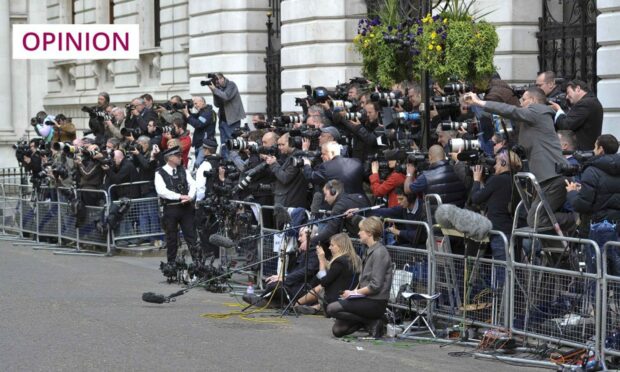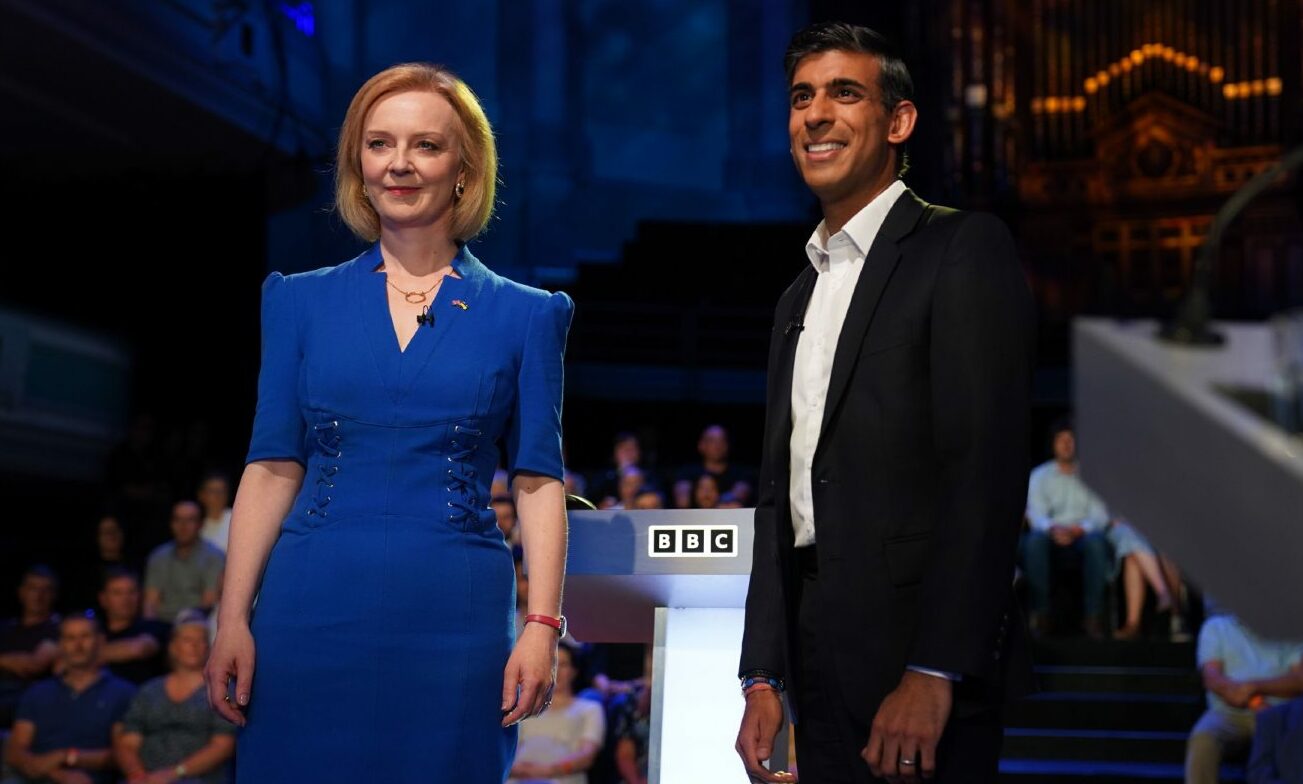This time next week, we will find out who our new prime minister is.
News coverage and TV debates don’t really tell us how well they’ll do in the job, but there is another way to predict how well each candidate might perform. Watch how they treat the local media.
The point is not that local journalists are more important than entrepreneurs, scientists, business leaders, educators or farmers. It’s that the media is demanding, relentless, overwhelming and frustrating.
Resources and patience can run out by the time it’s the turn of the local press. But the power of the media is not to be underestimated, and the leaders who manage this well last longer in the top job.

I was a young reporter when I was sent to cover Tony Blair’s campaign trail. I remember being stunned by how much make-up he was wearing. But, Blair’s media operation was slick and gave the press exactly what they needed.
His make-up made him look tanned and healthy on TV. The photocall went without a hitch. We got our shots, made it to air and got home in time for tea. He enjoyed a decade in office.
Gordon Brown was charismatic but chaotic as PM
Things started off well when I first met Gordon Brown. I was part of a press pack covering his wedding in August 2000, whilst he was chancellor of the exchequer. The newlyweds kindly sent out glasses of champagne to all the press.
Later, after he became prime minister, I requested an interview. He was getting bad press at the time, but I wanted to talk to him about how the NHS had saved his sight – a rare opportunity for positive coverage.
Weeks went by, and the programme was almost wrapped up, when I suddenly received a phone call from Brown’s team, saying he was available in Downing Street the following afternoon. I hurriedly found a camera operator and jumped on a flight down to London.
I received a call from Brown’s press team; would I be providing a make up artist? I said that, no, we didn’t do that away from the studio and, anyway, the interview was confirmed at too short notice. This met with a frosty response.
Gordon Brown’s media image reflected his chaotic press team
I arrived at Downing Street to find numerous press officers floating around whilst we set up, as if we had a secret plan to do something underhand with our lights and camera. Their efforts would have been better spent briefing their boss because, a few minutes later, Mr Brown walked in and said: “Oh, I thought this was a radio interview!”
In person, he was warm and charismatic, yet Gordon Brown’s media image reflected his chaotic press team. He was dogged by negative press for his brief, three-year premiership.
Sunak invites journalists in while Truss shuts them out
What has all this to do with Liz Truss and Rishi Sunak? Well, for me, the most revealing insight into the candidates came from the Press Gazette. This media newsletter asked five local journalists about their recent interactions with the candidates and their teams.
An East Anglian journalist said that Liz Truss is now the MP who doesn’t respond to her calls “99 times in 100” – although, when she can get hold of her, she describes Ms Truss as “warm and open”.
Not quite as warm as Rishi Sunak, according to the editor of Richmondshire Today, who said that, upon becoming an MP, Mr Sunak invited him over for a cuppa and even made plans for a playdate for their children. The politician employed the editor of another local paper as a member of his team.
On a recent visit to the Isle of Wight, Sunak’s team helped the local press to get what they needed. One reporter was offered extra time for a sit-down interview. In comparison, journalists were left in the dark about Liz Truss’s plans on the same isle.
After finally learning that there was to be a photocall at a local shipyard, they were welcomed in by the owners, only to be told to leave by Truss’s team. When the journalists refused, they were told not to take pictures of Truss at her own photocall!
Be nice to people
Today’s green, young reporters are tomorrow’s correspondents and political influencers. Their careers are swift, and many make that leap within the space of a premiership.
It’s worth remembering that some really good PR can cost as little as a cup of coffee
The smart leaders spot this opportunity and invest in ex-journalists to handle it. That, to me, is a pretty good indicator of the skills they are going to need in other aspects of the top job.
Even if you’re not running for prime minister and don’t have a press team, it’s worth remembering that some really good PR can cost as little as a cup of coffee. As the saying goes: be nice to people when you are on your way up, and they will be nice to you when you are on your way down.
Eleanor Bradford is a former BBC Scotland health correspondent and now works in communications in the education sector



Conversation